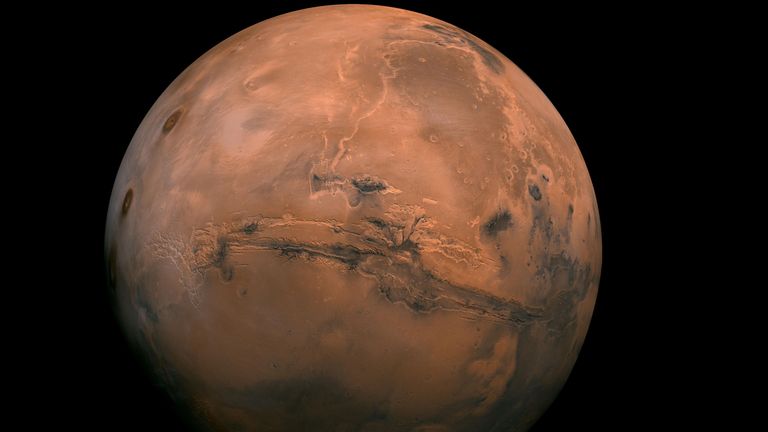Scientists have confirmed that a NASA rover detected a methane "burp" in 2013, and it could be evidence that there is life on the red planet.
Findings from the Mars Express spacecraft show that the methane gas burst out of ice cracks near the Gale Crater, which is thought to be where an ancient lake used to be.
The discovery of gas initially divided scientists, with some claiming that the gas came from the rover itself – which was rejected by the team.
It has now been confirmed that the a methane eruption did take place and was picked up by the Mars curiosity rover, as well as the European Space Agency (ESA) orbiter.
On Earth, the gas can be generated by geological processes, but it's mostly released by micro-organisms called "methanogens", some of which live in the guts of ruminant animals.
Advertisement
Finding methane in space has long been considered the starting point that could indicate the presence of life.
The gas may have occurred in a non-biological process, such as a chemical reaction that involves carbon dioxide, water and a mineral called olivine or it may have been produced by microbial bugs.
More from Mars
However it happened, the gas would have punched it's way through cracks on the surface of ice that was caused by pressure build up, seismic stresses or meteor strikes.

Computer simulations show that around 4,000 tonnes of methane in total could have been released from a region less than 800km (497 miles) east of the Gale Crater.
The Mars Express itself detected around 46 tonnes of methane "out-gassing" from an area of 49,000 square kilometres (30,447 miles).
The group of scientists, led by Dr Marco Giuranna from the National Institute of Astrophysics in Rome, said: "The results presented in this work not only corroborate previous detections by Curiosity but, in a broader perspective, might change our view of methane occurrence on Mars.
"Rather than by large emissions and a global presence, our data suggests that the presence of methane on Mars might be characterised by small, short emissions and transientRead More – Source
[contf] [contfnew] 
Sky News
[contfnewc] [contfnewc]



![Olivia Culpos See-Through Outfit Leaves Little To The Imagination [VIDEO]](https://amsterdamtimes.info/wp-content/uploads/2018/04/GettyImages-612315324-e1489590954262-300x194.jpg)



